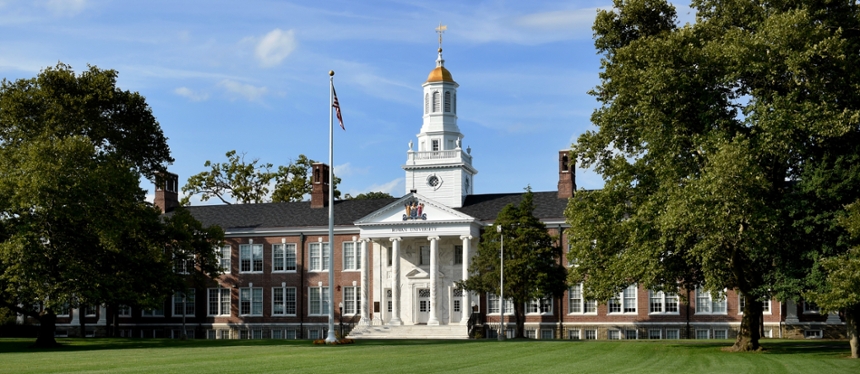Restrictions
Restrictions
Restrictions of the J-1 Visa
This section covers the possible restrictions you may be subject to as a J-1 visa holder. There are two main restrictions of the J-1 visa. The first is the Two-Year Home Residency Requirement, also known as 212(e), and the second are the bars on repeat participation. Many people mistakenly believe these restrictions are the same thing, but there are key differences that set them apart.
If you need any clarification on either of these restrictions, and want to know if you are subject to them, please contact the International Center at rowanic@rowan.edu.
212(e) Two-Year Home Residency Requirement
Some J-1 Exchange Visitors are subject to a requirement known as the "two-year home residency requirement", or 212(e), following the end of their J-1 program. This rule requires some J-1 Exchange Visitors (and their J-2 dependents) to spend an aggregate of two years, physically present in their country of lawful permanent residency following the end of their J-1 program before they are eligible for the following benefits:
- H visa (temporary workers and dependents), an L visa (intra-company transferees and dependents), or a K visa (fiancé and dependents); statuses
- Lawful permanent residency (aka "green card")
- A change of status from within the U.S. to any other nonimmigrant category except A (diplomatic), G (international organization), or U (victims of qualifying criminal activity) statuses.
NOTE: Exchange Visitors subject to the two-year home residency requirement are eligible to leave the U.S. and apply for visas to return in other nonimmigrant statuses such as tourists or F-1 students as long as they are otherwise eligible for those visas. The two-year home residency requirement is uniquely different from the 12 and 24 month bars on repeat participation. A J-1 Exchange Visitor may be subject to a repeat participation bar and the two-year home residency requirement, just one of these requirements, or none of these requirements. Consult an International Center advisor if you are unsure which, if any, of these regulations apply.
Who is Subject to 212(e)?
All J-1 Exchange Visitor categories have the potential of being subject to 212(e). This depends on the specific details of the program. There are three grounds on which an Exchange Visitor can be subject to the requirement:
The Exchange Visitor’s program was financed directly by either the U.S. government or the Exchange Visitor’s last country of legal presence.
The skills that the Exchange Visitor came to the U.S. to exercise are in a field that the Exchange Visitor’s home government has requested to be included on the State Department’s "skills list".
The Exchange Visitor came to the United States to receive graduate medical education or training.
Note: An Exchange Visitor who falls into one of these groups will continue to be subject, even if funding, field of study, or nonimmigrant status changes, until the requirement is fulfilled or a waiver is successfully obtained. J-2 dependents are subject to this requirement if their J-1 principal family member is subject to the requirement.
212(e) Waiver
An Exchange Visitor may request that the two-year home residency requirement be waived under certain circumstances. Please contact the International Center for more information.
The 12-Month and 24-Month Bars
There are two bars on repeat participation that J-1 Exchange Visitors may be subject to. If you were previously a J-type visa holder, you may be subject to one of these bars. The bars are different from the two-year home residency requirement (212e).
12-Month Bar
Individuals who have been in the US for six months or more in the previous year (12 months) in any J-visa status are not eligible to enter the US as a J-1 Research Scholar or Professor for a 12-month period. Time spent in the J-1 Short-term Scholar category does not count towards the 12-month bar. The 12-month bar applies to both the J-1 principal and any J-2 dependents. The 12-month bar does not prevent individuals from returning to the U.S. in any other visa status or in some other J categories such as Short-Term Scholar or
Student.
24-Month Bar
Any individual who participates in an Exchange Visitor program in the Professor or Research Scholar categories on or after 11/18/06 is subject to a 24-month bar on “repeat participation” in those categories. Scholars subject to the bar may not return to the US as a J-1 scholar in the Professor or Research Scholar categories for the 24-month period. This bar also applies to J-2 dependents.
When a scholar either concludes or leaves a Research Scholar or Professor J-1 program (whichever happens earlier), the scholar's record becomes inactive in SEVIS. At that point, the 24-month bar time starts to accrue. The 24-month bar will be in effect regardless of whether status in the program is a few months in duration or the full five years allowed.
EXAMPLE: A J-1 Professor who comes for a single academic year, or a Research Scholar that comes for four months, and then goes home without having their SEVIS record kept open and active in their absence, would not be able to access the remainder of the five year period of eligibility, would be subject to the 24-month bar, and would not be eligible to return to the U.S. as a J-1 Professor or Research Scholar at any U.S. institution until 24 months (two years) after the program ended.
Therefore, it is extremely important for the International Center to be informed of a scholar's departure and their future plans, so that the scholar's SEVIS record can be properly maintained to facilitate their possible return to the U.S. In some cases, it might be possible to keep a scholar's SEVIS record active if they will be out of the country yet continuing the program. We recommend contacting an advisor at the International Center to discuss a visitor's plans and intention to return to the U.S. in the future so the SEVIS record may be correctly managed. The 24-month bar does NOT prevent individuals from returning to the U.S. in any other visa status



